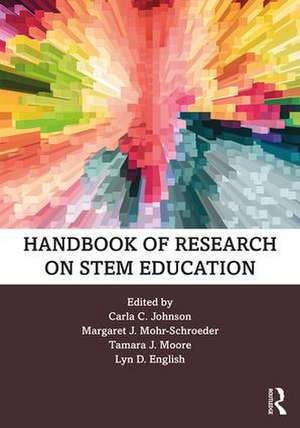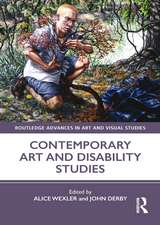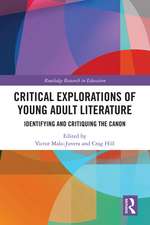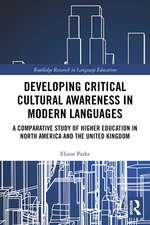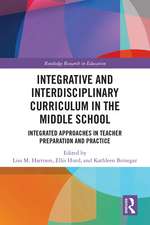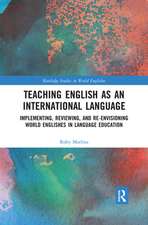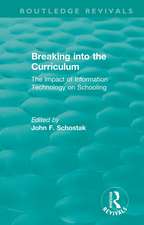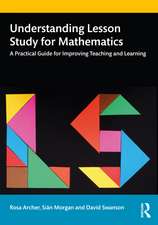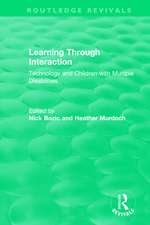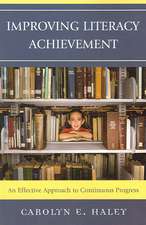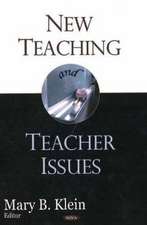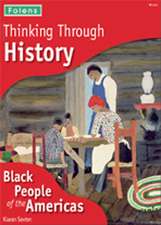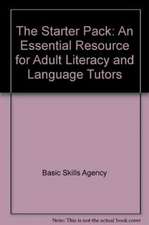Handbook of Research on STEM Education
Editat de Carla C. Johnson, Margaret J. Mohr-Schroeder, Tamara J. Moore, Lyn D. Englishen Limba Engleză Paperback – 12 mai 2020
The Handbook of Research on STEM Education explores the most pressing areas of STEM within an international context. Divided into six sections, the authors cover topics including: the nature of STEM, STEM learning, STEM pedagogy, curriculum and assessment, critical issues in STEM, STEM teacher education, and STEM policy and reform. The Handbook utilizes the lens of equity and access by focusing on STEM literacy, early childhood STEM, learners with disabilities, informal STEM, socio-scientific issues, race-related factors, gender equity, cultural-relevancy, and parental involvement. Additionally, discussion of STEM education policy in a variety of countries is included, as well as a focus on engaging business/industry and teachers in advocacy for STEM education.
The Handbook’s 37 chapters provide a deep and meaningful landscape of the implementation of STEM over the past two decades. As such, the findings that are presented within provide the reader with clear directions for future research into effective practice and supports for integrated STEM, which are grounded in the literature to date.
| Toate formatele și edițiile | Preț | Express |
|---|---|---|
| Paperback (1) | 756.76 lei 6-8 săpt. | |
| Taylor & Francis – 12 mai 2020 | 756.76 lei 6-8 săpt. | |
| Hardback (1) | 1471.61 lei 6-8 săpt. | |
| Taylor & Francis – 12 mai 2020 | 1471.61 lei 6-8 săpt. |
Preț: 756.76 lei
Preț vechi: 922.88 lei
-18% Nou
Puncte Express: 1135
Preț estimativ în valută:
144.87€ • 151.16$ • 121.44£
144.87€ • 151.16$ • 121.44£
Carte tipărită la comandă
Livrare economică 12-26 martie
Preluare comenzi: 021 569.72.76
Specificații
ISBN-13: 9780367075620
ISBN-10: 0367075628
Pagini: 526
Ilustrații: 42
Dimensiuni: 178 x 254 x 34 mm
Greutate: 1.28 kg
Ediția:1
Editura: Taylor & Francis
Colecția Routledge
Locul publicării:Oxford, United Kingdom
ISBN-10: 0367075628
Pagini: 526
Ilustrații: 42
Dimensiuni: 178 x 254 x 34 mm
Greutate: 1.28 kg
Ediția:1
Editura: Taylor & Francis
Colecția Routledge
Locul publicării:Oxford, United Kingdom
Public țintă
AcademicCuprins
Contents
Preface
Section 1: The Nature of STEM
Chapter 1 – STEM Integration: A Synthesis of Conceptual Frameworks and Definitions
Chapter 2 – STEM Education Through the Epistemological Lens: Unveiling the Challenge of STEM Transdisciplinarity
Chapter 3 – Moving Toward an Equity-based Approach for STEM Literacy
Chapter 4 – A Worldly Perspective: Applying Theory to STEM Education
Chapter 5 – Theoretical Frameworks for STEM Education Research
Chapter 6 – Integrated STEM Pedagogies and Student Learning
Chapter 7 – Design Learning in STEM Education
Chapter 8 - The Importance of Early STEM Education
Chapter 9 – Elementary STEM Learning
Chapter 10 – Secondary STEM Learning
Chapter 11 – Considering STEM for Learners with Disabilities and Other Diverse Needs
Chapter 12 – Informal STEM Program Learning
Chapter 13 – Creating STEM Learning Opportunities through Partnerships
Chapter 14 – History of Integrated STEM Curriculum
Chapter 15 – Infusing Evidence-Based Reasoning in Integrated STEM
Chapter 16 – Integrating Computational Thinking in STEM
Chapter 17 – Socio-Scientific Issues as Contexts for the Development of STEM Literacy
Chapter 18 – Learning Models and Modeling Across the STEM Disciplines
Chapter 19 – Contemporary Methods of Assessing Integrated STEM Competencies
Chapter 20 – Intersectionality in STEM Education Research
Chapter 21 – Perspectives of Identity as an Analytic Framework in STEM Education
Chapter 22 – Race-related Factors in STEM: A Review of Research on Educational Experiences and Outcomes for Racial and Ethnic Minorities
Chapter 23 – Research on Gender Equity in STEM Education
Chapter 24 – The Affordances and Challenges of Enacting Culturally Relevant STEM Pedagogy
Chapter 25 – STEM Inclusion Research for English Language Learners (ELLs): Making STEM Accessible to All
Chapter 26 – Parent Involvement and its Influence on Children’s STEM Learning: A Review of the Research
Chapter 27 – Elementary STEM Teacher Education: Recent Practices to Prepare General Elementary Teachers for STEM
Chapter 28 – Secondary STEM Teacher Education
Chapter 29 – Research on K-12 STEM Professional Development Programs: An Examination of Program Design and Teacher Knowledge and Practice
Chapter 30 – Teacher Leadership for STEM Programming
Chapter 31 – STEM-Focused School Models
Chapter 32 – STEM Policy in the United States and Canada
Chapter 33 – STEM Policy in Asia
Chapter 34 – STEM Policy in Australia
Chapter 35 – Latin American STEM Policy: A Review of Recent Initiatives on STEM Education in Four Latin American Countries
Chapter 36 – Measuring the Impact of Business Engagement on STEM Education
Chapter 37 – STEM Teacher Leadership in Policy
Preface
Section 1: The Nature of STEM
Chapter 1 – STEM Integration: A Synthesis of Conceptual Frameworks and Definitions
Chapter 2 – STEM Education Through the Epistemological Lens: Unveiling the Challenge of STEM Transdisciplinarity
Chapter 3 – Moving Toward an Equity-based Approach for STEM Literacy
Chapter 4 – A Worldly Perspective: Applying Theory to STEM Education
Chapter 5 – Theoretical Frameworks for STEM Education Research
Chapter 6 – Integrated STEM Pedagogies and Student Learning
Chapter 7 – Design Learning in STEM Education
Chapter 8 - The Importance of Early STEM Education
Chapter 9 – Elementary STEM Learning
Chapter 10 – Secondary STEM Learning
Chapter 11 – Considering STEM for Learners with Disabilities and Other Diverse Needs
Chapter 12 – Informal STEM Program Learning
Chapter 13 – Creating STEM Learning Opportunities through Partnerships
Chapter 14 – History of Integrated STEM Curriculum
Chapter 15 – Infusing Evidence-Based Reasoning in Integrated STEM
Chapter 16 – Integrating Computational Thinking in STEM
Chapter 17 – Socio-Scientific Issues as Contexts for the Development of STEM Literacy
Chapter 18 – Learning Models and Modeling Across the STEM Disciplines
Chapter 19 – Contemporary Methods of Assessing Integrated STEM Competencies
Chapter 20 – Intersectionality in STEM Education Research
Chapter 21 – Perspectives of Identity as an Analytic Framework in STEM Education
Chapter 22 – Race-related Factors in STEM: A Review of Research on Educational Experiences and Outcomes for Racial and Ethnic Minorities
Chapter 23 – Research on Gender Equity in STEM Education
Chapter 24 – The Affordances and Challenges of Enacting Culturally Relevant STEM Pedagogy
Chapter 25 – STEM Inclusion Research for English Language Learners (ELLs): Making STEM Accessible to All
Chapter 26 – Parent Involvement and its Influence on Children’s STEM Learning: A Review of the Research
Chapter 27 – Elementary STEM Teacher Education: Recent Practices to Prepare General Elementary Teachers for STEM
Chapter 28 – Secondary STEM Teacher Education
Chapter 29 – Research on K-12 STEM Professional Development Programs: An Examination of Program Design and Teacher Knowledge and Practice
Chapter 30 – Teacher Leadership for STEM Programming
Chapter 31 – STEM-Focused School Models
Chapter 32 – STEM Policy in the United States and Canada
Chapter 33 – STEM Policy in Asia
Chapter 34 – STEM Policy in Australia
Chapter 35 – Latin American STEM Policy: A Review of Recent Initiatives on STEM Education in Four Latin American Countries
Chapter 36 – Measuring the Impact of Business Engagement on STEM Education
Chapter 37 – STEM Teacher Leadership in Policy
Notă biografică
Carla C. Johnson is Professor of Science Education and Associate Dean in the College of Education, and Executive Director of the Friday Institute for Educational Innovation at North Carolina State University, USA.
Margaret J. Mohr-Schroeder is Professor of STEM Education and Associate Dean at University of Kentucky, USA.
Tamara J. Moore is Professor of Engineering Education and Interim Executive Director of INSPIRE Research at Purdue University, USA.
Lyn D. English is Professor of STEM Education at Queensland University of Technology, Australia.
Margaret J. Mohr-Schroeder is Professor of STEM Education and Associate Dean at University of Kentucky, USA.
Tamara J. Moore is Professor of Engineering Education and Interim Executive Director of INSPIRE Research at Purdue University, USA.
Lyn D. English is Professor of STEM Education at Queensland University of Technology, Australia.
Descriere
The first Handbook of Research on STEM Education, this volume draws on a rich and growing research base and constitutes the first comprehensive synthesis of the field. Organized into six sections, the handbook addresses the cutting-edge and fast-growing interdisciplinary nature of STEM education.
